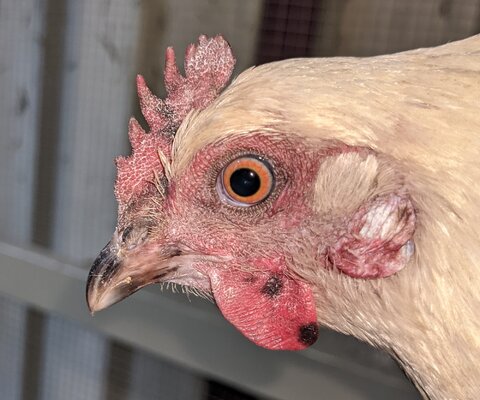I picked two birds up from a breeder who was keeping his birds in completely squalid conditions - a very muddy cage with a tarp roof. The chickens were filthy and I washed them both the following day. It didn't help much though.
The older pullet had a very rough looking comb and wattle. I assumed it was because of the squalid conditions it was living in and would start looking healthy as a result of living in better conditions. I thought I had better check with the experts though in case this is pox or something and I need to return it/them and keep them away from the other birds. Both birds are extremely nervous, the younger one less so, but both much more nervous than other birds I've purchased. I doubt I can let them out of the coop before they calm down but they're nowhere near that yet.
Here're the pics of the older pullet:



And the chick, which also has some black marks on its comb that I assumed was from pecking.


The older pullet had a very rough looking comb and wattle. I assumed it was because of the squalid conditions it was living in and would start looking healthy as a result of living in better conditions. I thought I had better check with the experts though in case this is pox or something and I need to return it/them and keep them away from the other birds. Both birds are extremely nervous, the younger one less so, but both much more nervous than other birds I've purchased. I doubt I can let them out of the coop before they calm down but they're nowhere near that yet.
Here're the pics of the older pullet:
And the chick, which also has some black marks on its comb that I assumed was from pecking.




